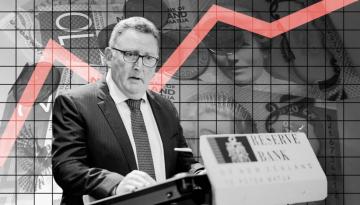Data released on Wednesday hammers a clear message about the state of New Zealand: in the words of the Reserve Bank, the economy is "doing it tough".
The data revealed unemployment rates are up from 4 percent to 4.3 percent, that 70 percent of Kiwis are worrying about money, and that liquidation is at a nine-year high with 230 companies failing in March.
If a business went to the wall in March this year, there's a 25 percent chance it was in the construction industry. That's because it's been hit the hardest.
"It's a perfect storm of people getting caught out, not enough cash reserves, the high cost of labour, the delays, it's all of those things coming home to roost," Building Industry Federation's Julien Leys explained.
Although it's not as bad as the 2007-2008 global financial crisis, across all industries, there's no denying the gravity of 230 companies calling it quits in March.
"If they don't have the cash reserves, if they don't have the bank, they tend to find things from a cash flow perspective very, very difficult," Centrix's Keith McLaughlin stressed.
That's because consumers are pulling back on their spending, with another survey showing 70 percent are worried about money.
Financial Services Council CEO Richard Kilpin told Newshub around 89 percent of them are concerned about high inflation, while 75 percent are concerned about "really high interest rates".
"So, that collection of data gives a really good reflection on the state of how people are feeling about their money and their wealth today," he said.
The pain felt by mortgage holders was acknowledged by the Reserve Bank which released its Financial Stability Report today.
"Some are doing it tough and having to adjust their payment timetable to make ends meet," Reserve Bank Deputy Governor Christian Hawkesby said.
The rapid transition from record low rates for fixed mortgages is almost over, with just 10 percent of mortgage owners left to roll over to a higher rate.
But that doesn't mean the economic pain will ease any time soon.
"New or persistent inflation pressures could result in global interest rates remaining higher for longer," Hawkesby added.
And there's some more numbers to digest, with house prices flatlining again and unemployment up by 4.3 percent.
It's probably going to hit five percent - but that's all part of the inflation busting plan engineered by the Reserve Bank.
"This has been a very well telegraphed slowdown in the economy," he said.
But it's still not slow enough, inflation needs to drop further so there will be no interest rate cuts soon.
Depending on which economist you talk to, rate relief should happen late this year or not until mid-2025.



